The Comprehensive Guide to Starting Your Off-Grid Journey
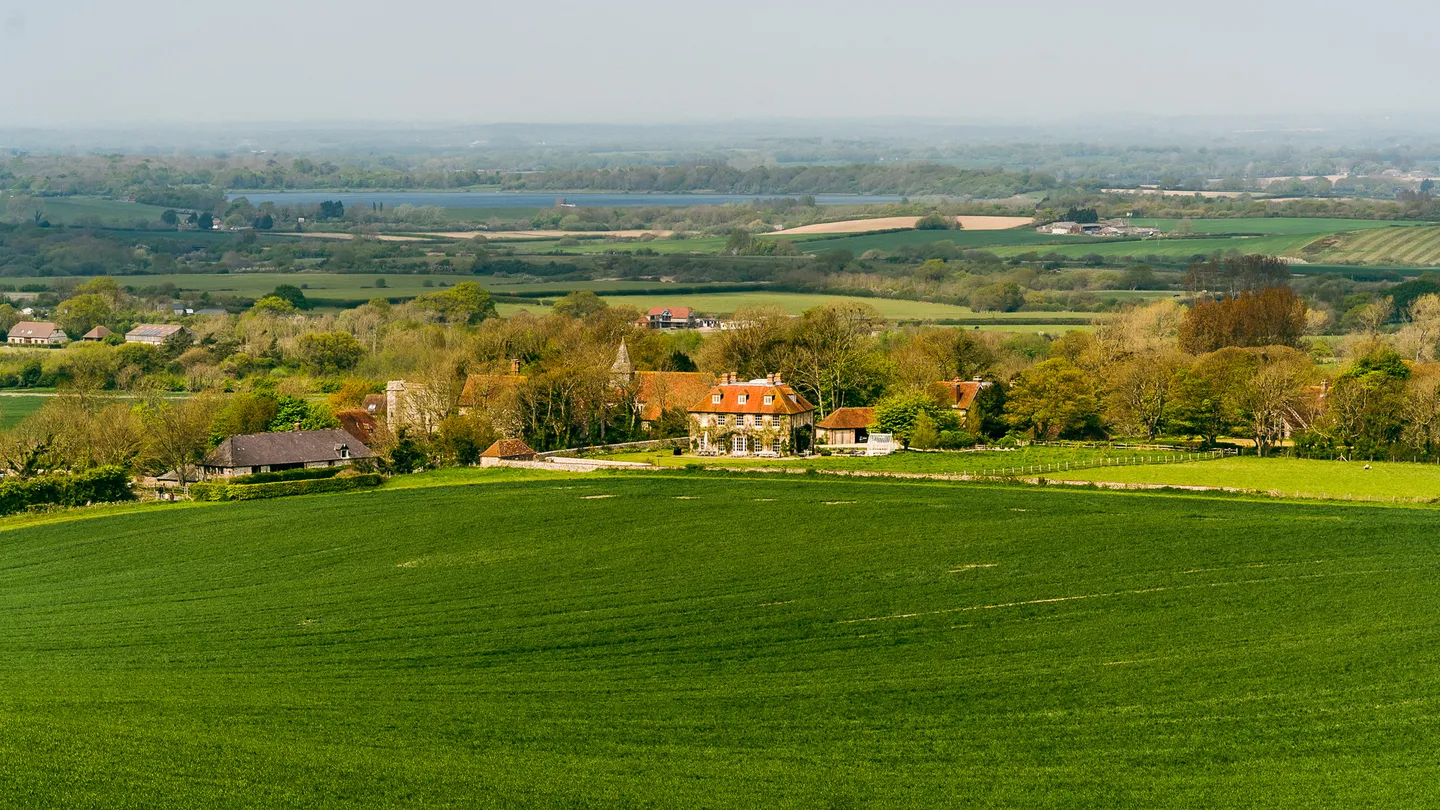
Off-grid living, a lifestyle choice that involves disconnecting from the mainstream electricity grid and often other utility services, is gaining traction globally. It represents a self-sufficient approach, where individuals or families generate their own power, source water, manage waste, and grow food independently. This way of life is not just about surviving without traditional utilities; it’s about thriving in a self-sustaining environment, reducing one’s carbon footprint, and embracing a closer connection with nature.
The appeal of off-grid living lies in its promise of freedom and self-reliance. In an era where environmental concerns and a desire for more straightforward, meaningful lifestyles are on the rise, off-grid living offers an alternative to the resource-intensive demands of modern urban life. It provides an opportunity to live in harmony with the environment, with a focus on renewable energy sources like solar and wind power.
However, transitioning to an off-grid lifestyle is challenging. It requires a significant initial investment, especially in setting up renewable energy systems and sustainable living infrastructures. Skills in various domains, such as energy management, agriculture, and basic construction, are essential. Moreover, off-grid living often involves adapting to a more isolated life, which can be a considerable change for those accustomed to urban environments’ conveniences and social settings.
Despite these challenges, the benefits of off-grid living – reduced environmental impact, increased self-sufficiency, and a deeper connection with nature – continue to draw many people towards this sustainable way of life. Looking into the specifics of starting an off-grid journey, it’s essential to remember that this lifestyle is not just a choice but a commitment to a more conscious and sustainable way of living.
Selecting a Suitable Location
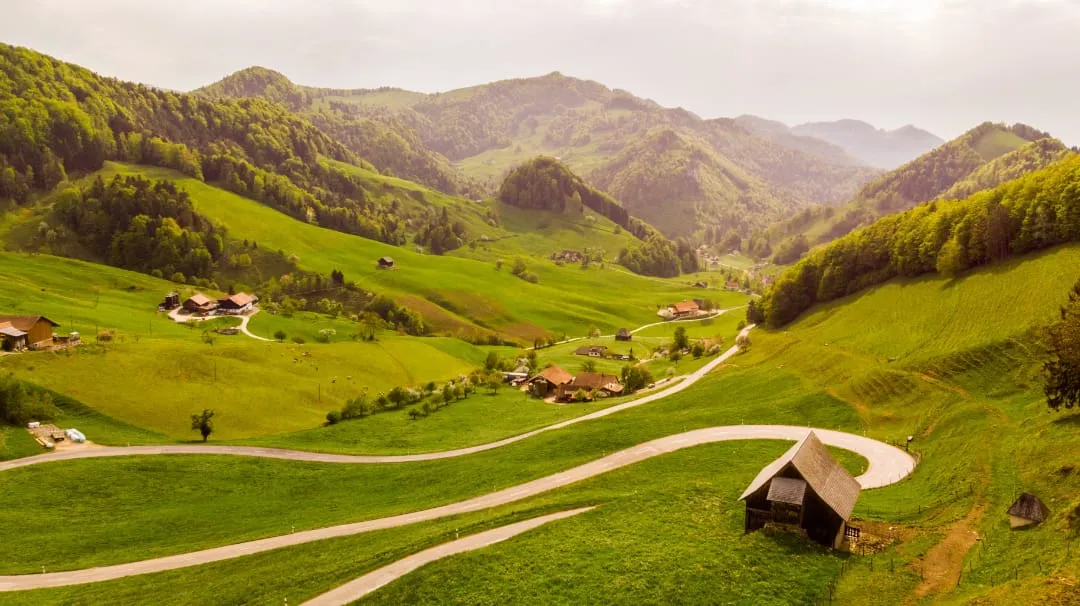
One of the most critical decisions when embarking on an off-grid journey is choosing the correct location. This decision will significantly influence your lifestyle, the sustainability of your off-grid setup, and overall satisfaction. Here are vital factors and tips for researching and visiting potential locations.
Factors to Consider
-
The local climate affects energy needs, water availability, and food-growing potential. Consider factors like sunshine hours (for solar power), wind patterns (for wind turbines), rainfall (for water collection and agriculture), and temperature extremes. Understand how seasonal changes might impact your living conditions and resource availability.
-
Off-grid living often involves navigating zoning laws, building codes, and environmental regulations. Research local laws regarding land use, renewable energy installations, water rights, and waste disposal. Some regions may have restrictions or specific requirements that could impact your off-grid plans.
-
Proximity to roads, towns, or emergency services is crucial, especially in case of medical emergencies or the need for supplies. Consider how accessible the location is during all seasons, mainly if the area is prone to harsh weather conditions like heavy snowfall.
-
Assess the availability of natural resources like water sources, woodlands for building materials or heating, and fertile land for cultivation. Consider the sustainability of using these resources – ensuring that their use won’t deplete them or harm the environment.
Tips for Researching and Visiting Potential Locations
-
Online Research and Networking: Utilise online forums, social media groups, and websites dedicated to off-grid living for firsthand accounts and advice. Connect with local residents or off-grid communities for insights and experiences.
-
Site Visits: Physically visiting potential locations is crucial. Spend time on the land during different seasons. Observe factors like sun exposure, wind patterns, and potential challenges like flooding or erosion.
-
Consulting Experts: Consider hiring or consulting with an environmental expert, a renewable energy specialist, or a local planner to evaluate the suitability of a location. They can provide valuable insights into the feasibility of your off-grid plans in specific locations.
-
Local Authorities and Neighbors: Engage with local authorities to understand any legal or regulatory considerations. Talk to neighbours or nearby residents for a clearer picture of the area, focusing on the advantages and potential issues.
-
Long-term Planning: Think about the future and any possible changes in the area. This includes potential development, environmental changes, or shifts in regulations.
Selecting the right location is a balance of practicality, legal compliance, and personal preferences. It’s about finding a place that meets your off-grid needs and feels like home. Take your time, do thorough research, and visit multiple locations to find the one that aligns best with your vision of off-grid living.
Basics of Solar Power
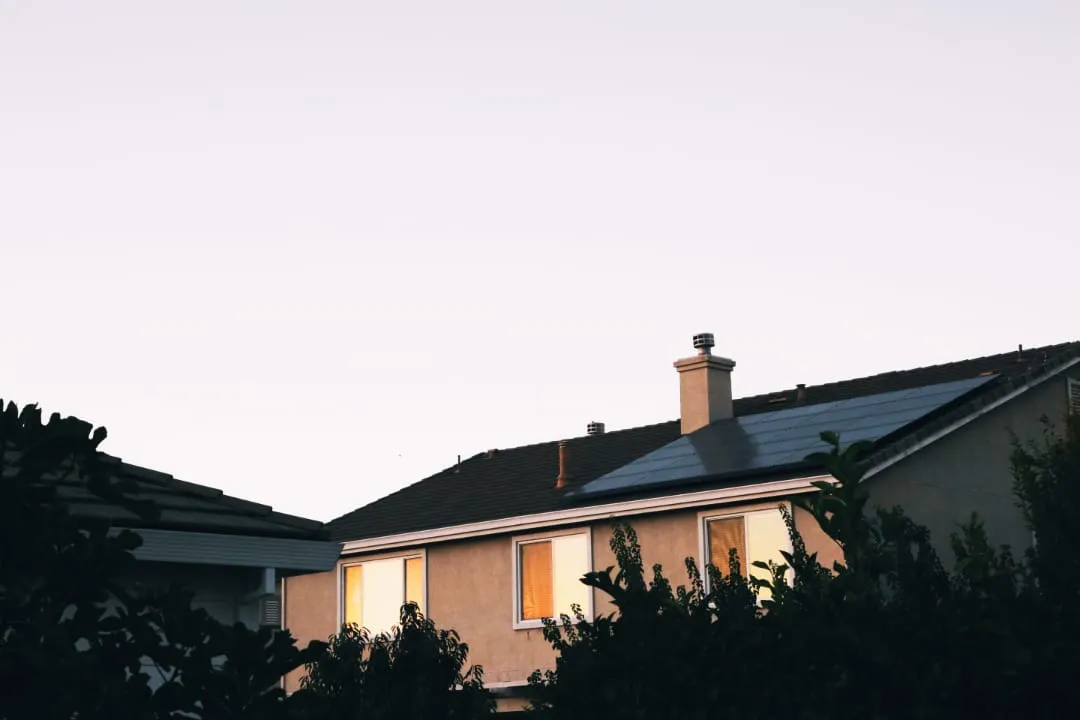
Solar power is a cornerstone of off-grid living, offering a renewable and sustainable energy source. Understanding its basics is crucial for anyone considering an off-grid lifestyle. Introduction to Renewable Energy Sources
Renewable energy comes from natural replenishment sources, unlike finite fossil fuels. The most common renewable sources include solar, wind, hydro, and geothermal. Solar power, harnessed through photovoltaic (PV) panels, is prevalent for off-grid setups due to its relative simplicity and availability in most locations.
Comparing Solar and Traditional Energy
Solar power offers several advantages over traditional fossil-fuel-based energy sources:
Pros of Solar Energy:
- Sustainability: Solar power is inexhaustible, unlike fossil fuels.
- Environmentally Friendly: It reduces carbon footprint and pollution.
- Reduced Energy Costs: The energy generated is free post-installation, leading to long-term savings.
- Independence: Off-grid solar systems provide energy autonomy.
Cons of Solar Energy:
- Initial Investment: The upfront cost of solar panels and batteries can be significant.
- Variable Output: Solar energy depends on sunlight, making it less reliable in cloudy or rainy climates.
- Storage Challenges: Storing excess energy requires batteries, which can be expensive and require maintenance.
- Suitability: Solar power is suitable for locations with ample sunlight. Its efficiency decreases in areas with long periods of cloud cover or short daylight hours.
Setting Up a Solar Power System
To set up a solar power system, several components and considerations are involved:
-
Solar Panels: These are the primary components that convert sunlight into electricity. The number and type of panels depend on your energy needs and available space.
-
Inverters convert the direct current (DC) electricity generated by panels into alternating current (AC) electricity used by most home appliances.
-
Batteries: Essential for storing energy when the sun isn’t shining. Battery capacity should match your energy needs and the system’s output.
-
Charge Controllers: They protect batteries from being overcharged or overly discharged, extending their lifespan.
-
Assessment and Installation: Conduct an energy audit to determine your power needs. Choose a suitable location for panels — usually rooftops or an open area with maximum sun exposure. Professional installation is recommended, although DIY installations are possible with the right skills.
-
Maintenance: Regular cleaning of panels and periodic system checks ensure optimal performance. Batteries, in particular, require monitoring and eventual replacement.
-
Legal and Safety Considerations: Check local regulations regarding solar panel installations. Ensure proper grounding and electrical safety standards are met.
In summary, solar power is a viable and eco-friendly option for off-grid living, offering independence from traditional energy grids. While the initial setup requires investment and planning, the long-term benefits of sustainability and reduced living costs make it a popular choice for those seeking a self-sufficient lifestyle.
Water Sourcing and Purification in Off-Grid Living
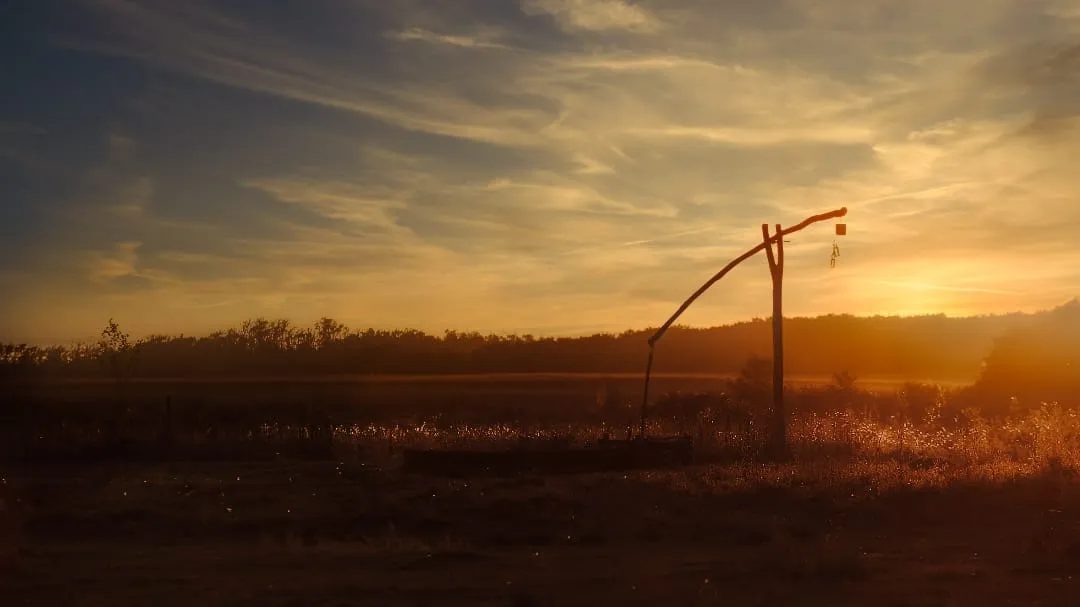
One of the most critical aspects of establishing an off-grid lifestyle is ensuring a reliable and sustainable water supply. The methods of sourcing and purifying water vary, each with its unique processes and considerations, and are pivotal in shaping the day-to-day life of off-grid inhabitants.
Sourcing Water
Rainwater harvesting, a prevalent method in off-grid communities, involves collecting and storing rainwater. Typically, this water is gathered from rooftops, filtered to remove debris, and stored in tanks. The effectiveness of this method primarily depends on the local climate, particularly in areas with regular rainfall, though it requires substantial storage capacity to bridge dry periods.
Wells offers another solution by tapping into groundwater sources. However, the process of drilling or digging wells demands careful planning regarding location and depth, often necessitating professional guidance. Regular testing for potential contaminants is also essential to ensure the water’s safety for consumption.
In specific locations, natural springs can serve as a viable water source. While spring water is often pure, conducting regular purity tests and considering treatment options to safeguard against contamination is crucial. Sustainable spring water use is also important, ensuring the extraction doesn’t deplete the spring or disrupt the local ecosystem.
Purification and Filtration
Once water is sourced, purification and filtration become paramount to ensure it’s safe for consumption. Filtration systems, which vary in complexity, help remove physical impurities like sediment and organic matter. From simple sediment filters to sophisticated multi-stage systems, the choice largely depends on the quality of the sourced water.
Purification methods complement filtration. Boiling is the simplest form of purification, albeit energy-intensive. Chemical cleaners, like chlorine or iodine, are effective but require careful handling. More advanced options include UV purification and reverse osmosis systems, which, while efficient, depend on a consistent power source.
Combining filtration and purification methods typically provides the most comprehensive approach to ensuring water safety. Regular maintenance of these systems is crucial for their continued effectiveness. Legal and Environmental Considerations
Navigating the legal landscape is also a part of establishing a water system. Water rights and usage regulations vary significantly, and permits may be necessary for well drilling or large-scale rainwater harvesting. Off-grid dwellers need to familiarise themselves with these regulations to avoid legal complications.
Equally important is considering the environmental impact of water sourcing. Sustainable practices should minimise the ecological footprint, especially in sensitive areas. This includes being mindful of how water sourcing and usage affect the local ecosystems and communities, particularly in regions facing water scarcity.
Establishing a water system in an off-grid setting requires a thoughtful blend of practical solutions, legal compliance, and environmental responsibility. By carefully selecting and managing water sources and purification methods, off-grid residents can ensure a sustainable and safe water supply, integral to the success and harmony of their off-grid lifestyle. Regular assessment and adaptation to changing conditions and needs are vital to maintaining this crucial resource.
Sustainable Food Production in Off-Grid Living

Achieving self-sufficiency in food production is a fundamental aspect of off-grid living. It reduces dependence on external food sources and aligns with the ethos of sustainability and environmental stewardship. The key to this is understanding the principles of permaculture and organic gardening principles, integrating small-scale livestock farming, and implementing effective seasonal planning and food preservation methods.
Principles of Permaculture and Organic Gardening
Permaculture, a concept rooted in creating sustainable and self-sufficient agricultural ecosystems, is central to off-grid food production. It emphasises working with natural processes and cycles rather than against them. This involves designing garden spaces that mimic natural ecosystems, maximising beneficial relationships between different plants and animals, and sustainably using resources.
Organic gardening goes hand in hand with permaculture. It involves growing food without synthetic pesticides or fertilisers, instead relying on natural processes and materials to nourish plants and control pests. This approach produces healthier, chemical-free food and helps maintain soil health and biodiversity. Integrating Small-Scale Livestock Farming
For those with the space and resources, incorporating small-scale livestock farming can greatly enhance off-grid food production. Chickens, for instance, can provide eggs and meat while contributing to pest control and soil fertilisation through their foraging activities. Goats or sheep can be raised for milk, cheese, and wool while also in land management by grazing on weeds and shrubs.
Careful consideration of the livestock’s needs, space requirements, and environmental impact is crucial. The aim is to create a symbiotic relationship where the animals contribute to the ecosystem’s health while providing food and other resources.
Seasonal Planning and Food Preservation
Understanding and planning for the changing seasons is vital in off-grid living. This involves knowing what to plant and when to ensure a continuous fresh produce supply throughout the year. Seasonal planning also helps prepare for times of scarcity, especially in harsher climates.
Food preservation is an essential skill in off-grid living. Techniques like canning, drying, fermenting, and cold storage enable surplus produce storage for use when fresh food is not readily available. These methods provide food security, help reduce waste, and maintain a varied diet year-round.
Sustainable food production in an off-grid setting requires a harmonious blend of ecological understanding, practical skills, and a commitment to living in tune with nature. By embracing the principles of permaculture and organic gardening, integrating livestock thoughtfully, and planning around the seasons, off-grid dwellers can establish a resilient and productive food system. This ensures a reliable food supply and deepens the connection with the natural world, a cornerstone of the off-grid philosophy.
Building or Renovating Off-Grid Homes
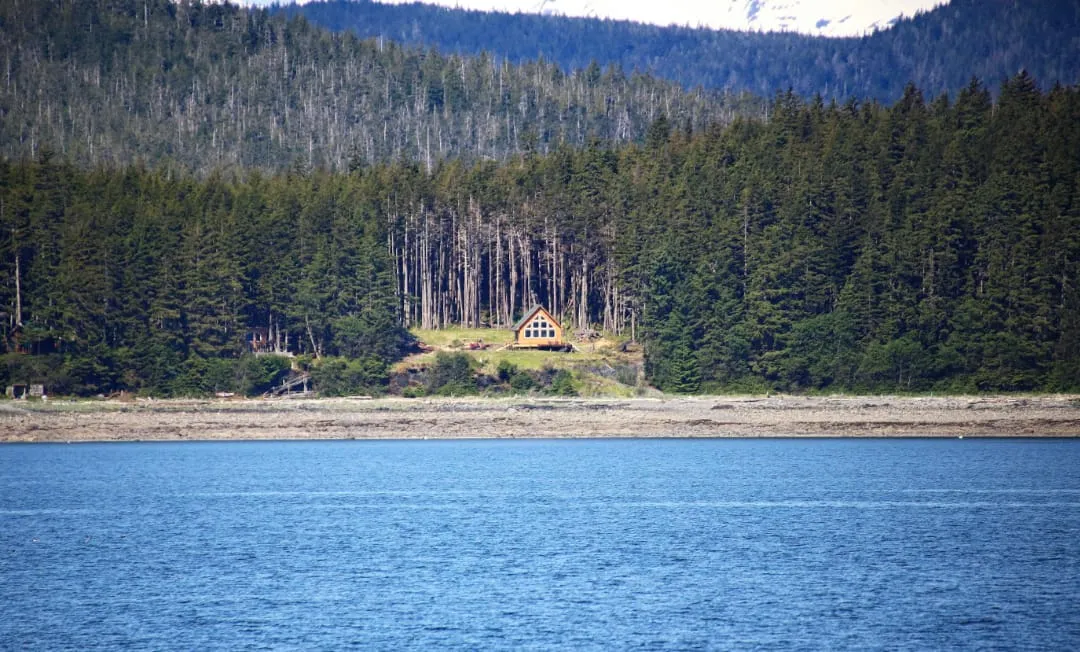
Creating or adapting a home for off-grid living involves careful planning and considering sustainability, efficiency, and self-sufficiency. Whether building from scratch or renovating an existing structure, the focus is on eco-friendly materials and designs, effective insulation and climate control, and the decision between DIY and professional involvement.
Eco-Friendly Building Materials and Designs
The choice of materials and design is pivotal in constructing an off-grid home. Eco-friendly building materials, such as reclaimed wood, natural stone, bamboo, and recycled metal or glass, are popular. These materials are not only sustainable but also add to the aesthetic and environmental harmony of the home.
The design of an off-grid home should prioritise energy efficiency and take advantage of natural resources. This includes utilising passive solar design – orienting the house and using materials to maximise natural heating from the sun – and incorporating features like green roofs or earth berms for natural insulation. The goal is to create a living space that complements its natural surroundings and minimises its ecological footprint.
Insulation, Heating, and Cooling
Adequate insulation is crucial in maintaining a comfortable indoor environment and reducing energy needs. Options like cellulose, sheep’s wool, or cotton batts are sustainable choices that provide excellent insulation. Windows and doors should be energy-efficient, with double or triple glazing to prevent heat loss.
Heating in off-grid homes often relies on wood stoves or solar heating systems supplemented by passive solar design. For cooling, natural ventilation strategies, shade from vegetation, and reflective materials can help maintain a relaxed environment without needing energy-intensive air conditioning.
DIY vs. Hiring Professionals
The decision between taking a DIY approach or hiring professionals depends on several factors, including skill level, budget, and the project’s complexity. DIY can be more cost-effective and offers a deep sense of personal accomplishment, but it requires significant time and effort. It’s essential to have a realistic understanding of one’s abilities and the project’s scope before deciding to tackle it independently.
Hiring professionals, on the other hand, can ensure that the job is done efficiently and to a high standard. Professionals bring expertise in structural integrity, eco-friendly designs, and compliance with local building codes. Professional assistance can be invaluable for those who need more construction experience or for more complex projects.
Building or renovating an off-grid home requires a thoughtful approach that balances sustainability with practicality. Utilising eco-friendly materials, focusing on efficient insulation and climate control, and carefully considering the extent of professional involvement are critical steps in creating a home that is self-sufficient and harmonious with its natural surroundings. This process, while challenging, is a significant step toward a successful and fulfilling off-grid lifestyle.
Waste Management and Recycling in Off-Grid Living

Effective waste management and recycling are crucial components of a sustainable off-grid lifestyle. The goal is to minimise waste, repurpose materials, and return nutrients to the earth, thus reducing the ecological footprint. This involves implementing composting strategies, reducing waste, and setting up recycling systems.
Composting and Waste Reduction Strategies
Composting is a fundamental practice in off-grid living. It involves the biological decomposition of organic waste, such as kitchen scraps and yard debris, turning it into nutrient-rich soil used in gardens. By composting, off-grid residents can significantly reduce household waste and enhance food production systems. Various methods can be used, from simple backyard compost heaps to more sophisticated techniques like worm composting or bokashi.
In addition to composting, waste reduction is a critical aspect. This involves adopting practices to minimise waste generation, such as buying in bulk, choosing products with minimal packaging, and repurposing or repairing items instead of discarding them. By being mindful of consumption and waste, off-grid dwellers can significantly reduce their impact on landfills and the environment.
Recycling Systems and Their Implementation
Setting up a recycling system is another crucial step in managing waste sustainably. This involves sorting and collecting recyclable materials such as paper, glass, metal, and certain plastics. Since off-grid locations may have little easy access to municipal recycling facilities, it’s crucial to have a plan for storing recyclables and transporting them to recycling centres when possible.
In some cases, off-grid residents find creative ways to repurpose recyclables on-site. For instance, glass bottles can be used in building projects, metal cans for storage, or plastic containers for starting seedlings. This reduces the need for disposal and fosters creativity and resourcefulness.
Key Considerations
- Space and Setup: Designate specific areas for composting and storing recyclables. Ensure these areas are well-organised and protected from pests.
- Community Involvement: In some off-grid communities, residents can collaborate on larger composting projects or organise shared trips to recycling centres, making the process more efficient.
- Education and Awareness: Staying informed about best waste management and recycling practices and being open to adopting new methods as they become available is crucial.
- Legal Compliance: Be aware of local regulations regarding waste disposal and recycling, especially when handling electronics or hazardous materials.
In conclusion, waste management and recycling in an off-grid setting require a proactive and thoughtful approach. By implementing effective composting techniques, adopting waste reduction practices, and establishing a recycling system, off-grid residents can play a crucial role in preserving the environment. These practices contribute to their lifestyle’s sustainability and set a positive example for eco-conscious living.
Community and Networking in Off-Grid Living

In the journey of off-grid living, the importance of community and networking cannot be overstated. While the off-grid lifestyle emphasises self-sufficiency, being part of a community of like-minded individuals can provide invaluable support, knowledge sharing, and a sense of belonging.
The Importance of Community in Off-Grid Living
Community plays a multifaceted role in off-grid living. It offers emotional support, which can be crucial in remote or isolated settings. Sharing experiences and challenges with others who understand the off-grid lifestyle can be incredibly reassuring. Additionally, communities often share resources and skills, making tackling large projects or overcoming specific difficulties easier. This collaborative environment fosters a sense of camaraderie and mutual aid, essential in a lifestyle that can sometimes be physically and emotionally demanding.
Networking with fellow off-grinders can exchange practical information, such as tips on sustainable living, recommendations for reliable suppliers, or advice on dealing with local regulations. This information exchange is invaluable, especially for those new to off-grid living.
Resources for Finding and Connecting with Like-Minded Individuals
- Online Forums and Social Media Groups: The internet is a rich resource for connecting with off-grid communities. Platforms like Reddit, Facebook, and dedicated off-grid living websites host forums and groups where individuals share experiences and offer advice and support.
- Local Workshops and Meetups: Participating in workshops or attending local meetups focused on skills relevant to off-grid living, like renewable energy, permaculture, or sustainable building practices, can be a great way to meet like-minded individuals in your area.
- Community Events and Conferences: Events such as sustainability expos, eco-friendly living conferences, and local farmers’ markets are excellent places to connect with others interested in or already living off-grid lifestyles.
- Volunteering: Engaging in community service projects or volunteering with environmental organisations can lead to connections with individuals with similar values and interests.
- Off-Grid Training Programs: Participating in training programs or courses related to off-grid skills enhances your knowledge and puts you in touch with experts and peers in the field.
- Local Community Boards and Clubs: Checking out community bulletin boards or joining local clubs centred around gardening, hiking, or environmental stewardship can lead to valuable local connections.
Building and Maintaining Connections
Building a network takes time and effort. Regular participation in community activities, being open to sharing your own experiences, and offering help to others can strengthen these bonds. Even in remote living situations, maintaining connections through digital communication can keep the sense of community alive.
In summary, community and networking are vital components of off-grid living. They provide a support system, a platform for learning and sharing, and a way to maintain social connections. Engaging with a community of like-minded individuals can enrich the off-grid experience, making it more enjoyable and sustainable in the long term.
Preparing Financially for Off-Grid Living

Transitioning to an off-grid lifestyle requires careful financial planning for the initial setup and managing ongoing costs. This planning is crucial to ensure a sustainable and stress-free off-grid experience. Additionally, considering potential sources of income while living off-grid is essential for long-term financial stability.
Budgeting for the Initial Setup
The initial setup for off-grid living can be a significant financial undertaking. This phase includes expenses such as purchasing land, building or modifying a home, setting up renewable energy systems (like solar panels or wind turbines), establishing water sourcing and purification systems, and implementing waste management solutions.
- Itemised Cost Analysis: Create a detailed budget, listing all the expected expenses. Research the costs of different options for housing, energy systems, water solutions, etc.
- Prioritising Expenses: Decide what needs to be done immediately and what can be phased in over time. For example, a basic solar system might be a priority, while more extensive landscaping can wait.
- Contingency Funds: Setting aside a portion of the budget for unexpected expenses is wise. Off-grid setups often encounter unforeseen challenges that can lead to additional costs.
Managing Ongoing Costs
Living off-grid often reduces many recurring expenses associated with traditional living, such as utility bills. However, there are ongoing costs to consider:
- Maintenance and Replacement: Renewable energy systems, water filters, and other equipment will require maintenance and eventual replacement. Budgeting for these costs is essential.
- Property Taxes and Insurance: These expenses will continue even in an off-grid setting. Ensure they are factored into your ongoing budget.
- Living Expenses: Day-to-day expenses such as food, healthcare, transportation, and communication must be accounted for.
Potential Sources of Income While Living Off-Grid
- Remote Work: The rise of remote work has made it easier to earn an income from virtually anywhere. This can be an ideal option for off-grid residents.
- Selling Produce or Crafts: If your off-grid setup includes growing food or making crafts, these can be sold at local markets or online.
- Offering Workshops or Tours: Use your off-grid lifestyle and skills to generate income by hosting educational workshops or tours.
- Freelancing or Consulting: Utilise your professional skills on a freelance or consulting basis.
- Online Content Creation: Share your off-grid journey through blogging, vlogging, or social media, potentially generating income through advertising or sponsorships.
In recap, financial preparation for off-grid living involves thorough budgeting for setup and ongoing costs and exploring diverse income streams. An effective financial strategy will ensure a smoother transition to off-grid living and contribute to a more sustainable and fulfilling lifestyle in the long term. Being financially savvy allows a greater focus on the joys and rewards of living off the grid.
Overcoming Challenges in Off-Grid Living
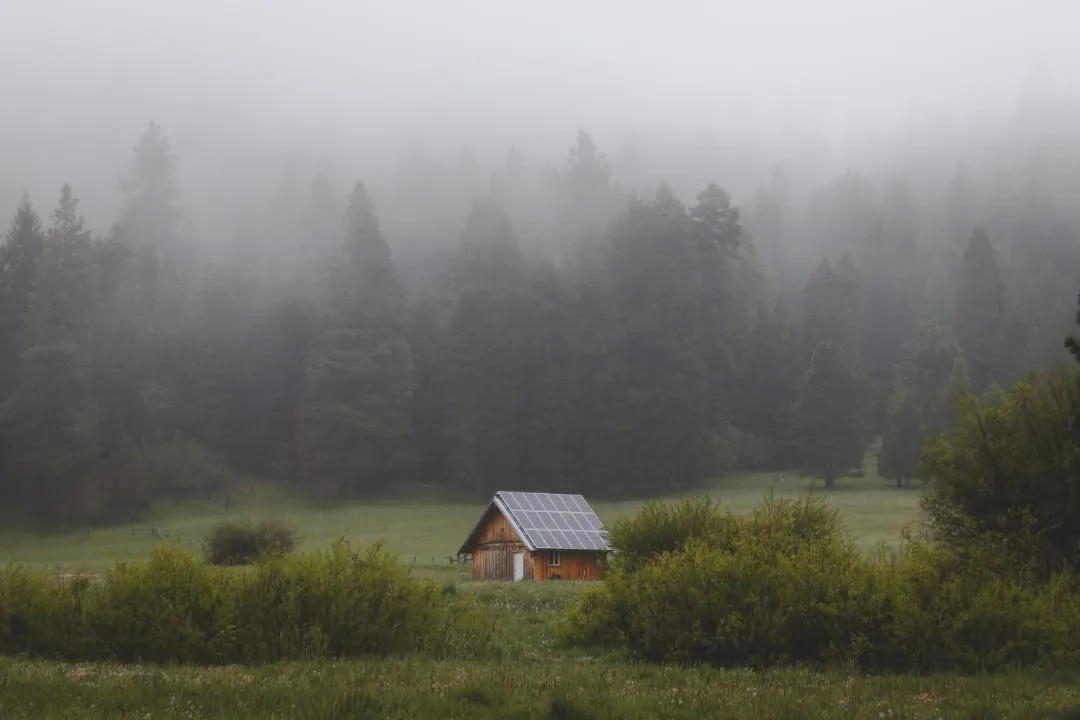
Embarking on an off-grid lifestyle is an adventure that brings many challenges, particularly for those new to this way of life. Understanding these challenges and preparing strategies to cope and find support is essential for a successful, fulfilling off-grid experience.
Learning Curve and Skill Acquisition
The steep learning curve is one of the most significant challenges for off-grid beginners. Off-grid living requires diverse skills ranging from managing renewable energy systems and water sourcing to gardening and basic carpentry. This can be daunting for newcomers, but the key lies in approaching it as a continuous learning journey. Investing time in educational resources such as online courses, workshops, and books is invaluable. It’s also beneficial to practice patience and give yourself time to acquire these new skills gradually.
Social Adjustments and Isolation
Another challenge can be the degree of isolation, especially for those who move to remote locations. Adjusting from a bustling urban life to the quiet of off-grid living requires a mental and emotional shift. Building a support network becomes crucial here. Engaging with local communities, joining online forums, or participating in off-grid living groups can provide a sense of belonging and shared understanding. These networks offer emotional support and can be a collection of practical advice and shared experiences.
Financial Management
The financial aspect of setting up and maintaining an off-grid lifestyle can also be challenging. The initial setup often requires a significant investment, and ongoing expenses can be different from what one might be used to in a more conventional setting. Effective financial planning, therefore, becomes a cornerstone of off-grid living. Developing a comprehensive budget that includes potential unforeseen costs is vital. Exploring diverse and creative income streams can help maintain financial stability and resilience.
Navigating Regulatory Hurdles
Dealing with regulatory requirements is another area where many off-grid beginners find challenges. This includes understanding and complying with zoning laws, building codes, and environmental regulations, which can vary significantly by location. Establishing a good working relationship with local authorities and seeking advice from those who have navigated these waters can be immensely helpful. It’s essential to approach these regulations not as obstacles but as part of the process to ensure safe and sustainable living practices.
Adapting to Environmental Challenges
Living off-grid also means adapting to the local environment, which can be particularly challenging in areas with extreme or unpredictable climates. This requires physical preparation in terms of building and system design and a mental readiness to live in tune with nature’s rhythms. It is crucial to understand and respect the local environment and tailor off-grid strategies to align with it. This could mean designing your home and systems to cope with specific weather conditions or learning to work with the land for food production.
Energy and Water Management
Ensuring consistent and reliable energy and water supplies is a continual focus in off-grid living. This often involves navigating fluctuating conditions and troubleshooting system failures. Containment plans, such as backup generators or additional water storage solutions, can provide security and peace of mind. Maintaining systems and staying informed about new technologies and methods can also enhance efficiency and reliability.
Emotional Resilience and Community Collaboration
Finally, the emotional aspect of off-grid living should be considered. Practices like mindfulness, staying connected with loved ones, and setting realistic expectations can be instrumental in maintaining emotional well-being. Additionally, embracing community and collaboration, whether through offering or seeking help, can lead to innovative solutions, shared resources, and a stronger sense of communal living.
In summary, while transitioning to off-grid living comes with its share of challenges, adequately preparing for these hurdles can lead to a gratifying experience. Embracing education, community, financial savvy, regulatory compliance, environmental adaptability, robust system planning, and emotional resilience are vital to thriving in an off-grid setting. With determination and resourcefulness, these challenges can be transformed into opportunities for growth, learning, and a more connected way of life.
Conclusion: Embracing the Off-Grid Journey
The journey towards off-grid living is transformative, marked by a shift towards self-sufficiency, sustainability, and a deeper connection with nature. It is a path that challenges conventional living, demands resilience and adaptability, but in return, offers an unparalleled sense of freedom and fulfilment.
This journey begins with the dream of a life less dependent on societal structures and more harmonious with the environment. It involves careful planning, from selecting the right location that balances natural resources with legal and accessibility considerations to setting up energy, water, and food systems that respect and utilise natural cycles.
Building or renovating a home with eco-friendly materials and designs sets the stage for a life that is both sustainable and comfortable. Managing waste, recycling, and embracing practices like composting are integral to reducing one’s ecological footprint.
Though challenging, the financial aspect of off-grid living teaches the value of resourcefulness and planning, while the community and networking aspect brings a sense of belonging and shared purpose.
Challenges such as the steep learning curve, the need for varied skills, financial management, and adapting to a new social environment are inevitable throughout the journey. However, these challenges are manageable. With the right approach, they forge resilience and ingenuity. Taking the First Step
For those considering this lifestyle, the first step is often the hardest and most rewarding. Begin by educating yourself, connecting with communities, and slowly integrating sustainable practices into your current lifestyle. Remember, off-grid living doesn’t happen overnight – it’s a gradual process of learning, growing, and adapting.
Embrace each stage of this journey with an open heart and mind. The off-grid lifestyle is not just about where you live but how you live. It’s about making conscious choices, being mindful of your impact on the environment, and building a life that aligns with your values.
So, take that first step. Whether starting a vegetable garden, installing a rainwater harvesting system, or planning your eco-friendly home, each action brings you closer to the off-grid dream. And remember, every journey begins with the courage to leave the familiar behind and step into the unknown.
In this journey, you will discover a new way of living and strengths and capabilities you never knew you had. Off-grid living is more than a lifestyle; it’s a testament to the human spirit’s ability to adapt, thrive, and live harmoniously with the earth. So go ahead, take that first step, and embark on an adventure that promises to be as rewarding as it is challenging.
